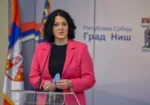In a surprising turn of events, Germany has struck a deal with Serbia to secure lithium supplies essential for the burgeoning electric vehicle (EV) market. The agreement, negotiated between German Chancellor Olaf Scholz and Serbian President Aleksandar Vučić, has raised eyebrows due to the financial terms involved.
The Deal
Germany, aiming to strengthen its position in the global EV market, has been aggressively pursuing lithium sources. Lithium is a critical component in the production of batteries for electric vehicles, and securing a steady supply is crucial for Germany’s ambitious green energy transition. Serbia, with its vast untapped lithium reserves, emerged as an ideal partner.
Under the terms of the deal, Germany will provide financial compensation to Serbia in the form of Serbian Dinars, the local currency. This aspect of the agreement has sparked controversy and debate among economic experts and the public alike.
The Financial Controversy
Critics argue that the payment in Serbian Dinars undermines the value of the deal for Serbia. The Serbian Dinar, often considered a less stable currency compared to the Euro or US Dollar, raises questions about the long-term benefits for Serbia. Some see this as a strategic move by Germany to minimize its financial outlay while securing a critical resource.
Germany, on the other hand, justifies the payment structure as a mutually beneficial arrangement. The deal is expected to bring significant investment to Serbia, including the development of infrastructure and job creation. The German government has also pledged to support Serbia in strengthening its mining sector, ensuring that the extraction of lithium is conducted in an environmentally sustainable manner.
Strategic Implications
For Germany, this deal is more than just about securing lithium. It represents a strategic geopolitical move to reduce reliance on lithium imports from other parts of the world, particularly China and South America. By diversifying its supply sources, Germany aims to enhance its energy security and maintain a competitive edge in the global EV market.
For Serbia, the deal presents an opportunity to boost its economy through foreign investment and technological advancements. However, the debate over the value of the Dinar payments remains a contentious issue. President Vučić has assured the public that the deal will bring long-term benefits to Serbia, emphasizing the importance of economic cooperation with Germany.
Environmental and Social Considerations
The extraction of lithium is not without its challenges. Environmentalists have raised concerns about the potential ecological impact of mining activities. Both Germany and Serbia have committed to adhering to strict environmental regulations to mitigate any negative effects on the local ecosystem.
Additionally, the social impact on local communities must be carefully managed. Ensuring that the benefits of the deal are equitably distributed and that local populations are involved in the decision-making process will be crucial for the success of this partnership.







